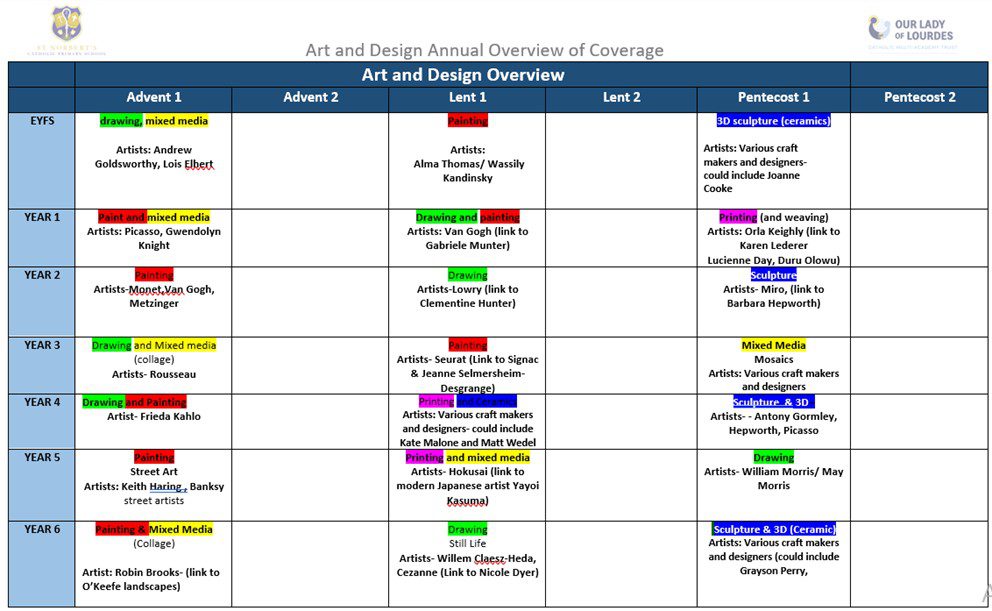National Curriculum Programme of Study
https://www.gov.uk/government/publications/national-curriculum-in-england-art-and-design-programmes-of-study
Intent
At St Norbert’s we offer a structure and sequence of lessons to ensure children have covered the skills required to meet the aims of the national curriculum. The intent is to ensure all pupils produce creative, imaginative work. Children have the opportunity to explore their ideas and record their experiences, as well as exploring the work of others and evaluate different creative ideas. Children will become confident and proficient in a variety of techniques including drawing, painting, sculpting, as well as other selected craft skills, e.g. collage, printing, weaving and patterns. Children will also develop their knowledge of famous artists, designers and craft makers. Our pupils will also develop their interest and curiosity about art and design through a series of lessons offering skills progression, knowledge progression and offering children the opportunity to ask questions and demonstrate their skills in a variety of ways. Lessons will offer the chance for children to develop their emotional expression through art to further enhance their personal, social and emotional development which can be done through other subject areas including RE.
Implementation
Each year group focuses on different themes, skills or artists to ensure continued interest in the subject as well as acquiring new knowledge. Lessons develop their techniques, including their control and their use of materials, with creativity, experimentation and an increasing awareness of different kinds of art, craft and design. As a school and, in accordance with the ambitious expectations of the National Curriculum’s, we aim to ensure that all pupils:
• Produce creative work, exploring their ideas and recording their experiences.
• Become proficient in drawing painting, sculpture and other art, craft and design techniques.
• Evaluate and analyse creative works using the language of art, craft and design.
• Know about great artists, craft makers and designers, and understand the historical and cultural development of their art forms.
Impact
We believe that Art and design learning is loved by teachers and pupils across school. Teachers have higher expectations and that evidence can be presented in a variety of ways. Our pupils use technical vocabulary with increasing accuracy and they are expected to know, apply and understand the matters, skills and processes specified. Children improve their enquiry skills and inquisitiveness about the world around them, and their impact through art and design on the world. We believe our pupils will become more confident in analysing their work and giving their opinion on their own and other works of art. Children show competences in improving their resilience and perseverance by continually evaluating and improving their work. All children in school can speak confidently about their art and design work and their skills.






